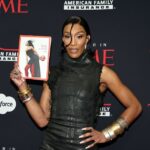
The New York State Commission on Judicial Conduct has launched a probe into a New York real estate attorney’s claim that he advised Judge Arthur Engoron in the case against former President Donald Trump.
Attorney Adam Leitman Bailey told WNBC-TV that he had a courthouse conversation with Engoron three weeks before the judge would slap Trump with a $454 million penalty for fraudulently inflating the value of his assets.
New York judges are barred from considering outside opinions in such a way when litigating a case, yet Bailey said he discussed the legal questions at length with the judge.
“I actually had the ability to speak to him three weeks ago,” Bailey said in an interview with the station on Feb. 16, just hours before the judge issued his ruling.
“I saw him in the corner [at the courthouse], and I told my client, ‘I need to go,’” he recounted.
“And I walked over, and we started talking … I wanted him to know what I think and why … I really want him to get it right,” the attorney continued.
Bailey said he knew Engoron after appearing before him “hundreds of times” in the course of his employment.
“He had a lot of questions, you know, about certain cases. We went over it,” the attorney said.
He said he “explained to” Engoron that ruling against Trump would have far-reaching implications beyond destroying the former president, including damaging New York’s economy.
Was Engoron biased against Trump?
Yes: 0% (0 Votes)
No: 0% (0 Votes)
If Trump were forced to pay a hefty fine and shut down his business, it would make other companies concerned about similarly being targeted at any time, even when there were no actual damages or victims, as in this case.
Trump’s legal team raised the same points, which Engoron ignored in his verdict.
In a later interview with WNBC, Bailey walked back his claims slightly, saying they “didn’t even mention the word ‘Donald Trump’” during their conversation.
However, the attorney admitted that it was understood exactly what they were discussing.
“Well, obviously, we weren’t talking about the Mets,” Bailey said.
[embedded content]
According to the New York State Rules of Judicial Conduct, “a judge shall not initiate, permit, or consider ex parte communications, or consider other communications made to the judge outside the presence of the parties or their lawyers.”
While Engoron would be allowed to “obtain the advice of a disinterested expert,” it would require notice to everyone involved in the case with the chance to respond.
Al Baker, a spokesman for the state’s Office of Court Administration, denied that the judge had broken those rules.
“The decision Justice Engoron issued February 16 was his alone, was deeply considered, and was wholly uninfluenced by this individual,” Baker said in a statement, according to WNBC.
Bailey has said he’s not a fan of Trump, but that doesn’t necessarily mean he’s telling the truth.
After all, he’s the kind of attorney who had his law license suspended for allegedly telling a party in a case that they “should just kill themselves,” an appellate court found in 2019.
Still, everything about Engoron and how he applied the law was questionable, even without Bailey’s accusation.
It’s clear that anti-Trump zealots in New York, including Engoron and Democratic New York Attorney General Letitia James, blatantly targeted the former president.
James brought the civil lawsuit, and Engoron dutifully imposed a ridiculous penalty that would have greatly reduced Trump’s wealth had it not been lowered to $175 million.
They did this without much to go on besides criminalizing a common business practice that is part of the dance between borrowers and lenders.
Engoron may or may not have acted on Bailey’s advice, but it’s crystal clear that the judge had a mission that had nothing to do with justice.







